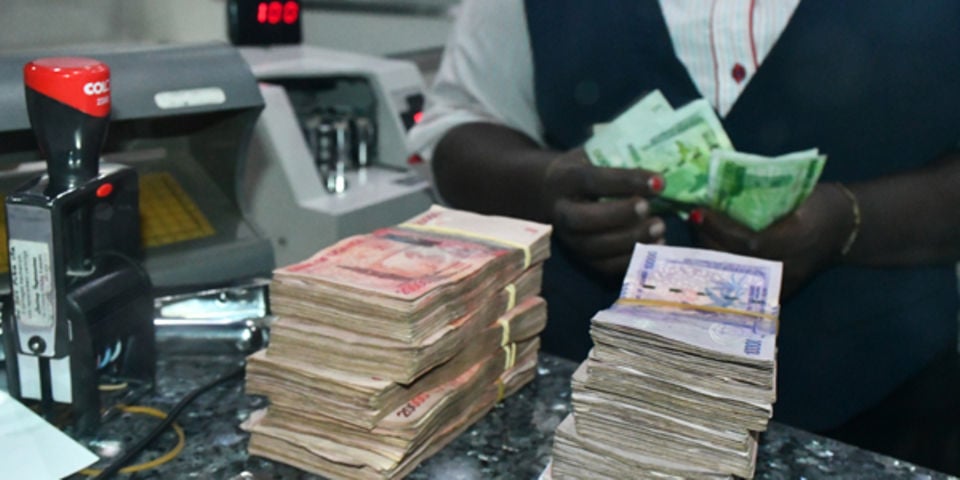Prime
Government commits Shs6.4t to fund its programmes

The disbursement of the Parish Development Model funds through parishes is among the programmes government is considering. PHOTO/FILE
What you need to know:
- Crucially, also, money will trickle into the pockets of a number of residents in the country through salaries, pensions and gratuity.
The government is hoping a Shs6.4 trillion infusion at the start of the third-quarter (Q3) of the 2022-2023 Financial Year (FY) will breathe life into the flagging economy.
The release of the funds by the Treasury means the government’s ministries, departments and agencies (MDAs) will have money at their disposal to discharge their duties, including implementing development programmes.
Crucially, also, money will trickle into the pockets of a number of residents in the country through salaries, pensions and gratuity.
Wages have gobbled up Shs1.8 trillion or 28.11 percent of the third quarter release. Non-wages have taken up Shs2.6 trillion or 22.81 percent of the money disbursed.
Development expenditure (Shs1.9 trillion) and domestic arrears (Shs31.8 billion) were also earmarked for the quarter that runs its course in March.
Taken together with the release for the first two quarters, the latest disbursement brings up to 77.16 percent what has been shelled out on the approved discretionary budget for FY 2022-2023.
“While setting cash limits for Q3, we took account of the releases made so far, performance of domestic revenues, the general economic outlook and the need to balance the objective of supporting economic recovery and service delivery with maintenance of macroeconomic stability and fiscal sustainability,” Mr Ramathan Ggoobi, the Finance ministry’s permanent secretary who is also secretary to the treasury (PSST), revealed. The PSST urged all accounting officers to ensure that wages, salaries, pensions and gratuity are paid by 28th of every month.
“Accounting officers must ensure timely submission of performance reports and accountability. The national identification numbers will be used in the confirmation of payment of wages, pensions and gratuity,” he said.
Mr Ggoobi also revealed that Shs1.6 trillion (41.65 percent of the approved Local Government budget) has been released to local governments as follows: Wage accounting for Shs796.7 billion; non-wage taking up Shs316.6 billion; and development Shs445 billion.
“Please note that 65.21 percent of the Local Government Development Grants have been released this quarter to enable Local Governments implement projects timely,” Mr Ggoobi said, adding, “This brings the total Local Government Development Grant release to 100 percent of the approved budget in line with [the government] commitment to minimise procurement delays and avoid unspent balances at the end of the Financial Year.”
Mr Ggoobi said this translates into a cumulative release of 85.76 percent of the Approved Budget for Local Governments.
The remaining balance is mainly for salaries, pension and gratuity to be released in Q4. The PSST also explained why some government workers have not been paid in recent times.
He attributed such delays to poor planning by the local government officials and enhancement of the budget.
Macroeconomic picture
Mr Ggoobi also revealed that 8,1931 parishes have already received their share of the Parish Development Model money.
“We have been advising the Local Government to help [the remaining 1,663 parishes] to be ready by fulfilling all the conditions so that they can also receive the money, which has been planned and budgeted for,” he said.
On the macroeconomic performance, Mr Ggoobi said the annual headline inflation had been on an upward trend since the start of FY2022-2023, peaking at 10.7 percent in October 2022.
“Following the coordinated monetary and fiscal policy interventions of the Central Bank and this ministry respectively, inflation has started declining, being recorded at 10.6 percent in November 2022 and 10.2 percent for December 2022,” he said, adding that the price of commodities such as fuel will continue to come down.
The PSST further revealed that the economy will grow at 5.3 percent in the current financial year. He also hinted at the performance of the fiscal policy in the current financial year ending on June 30, 2023.
The government, he noted, has at the end of the half year released 52.7 percent of its approved budget, excluding debt, external financing and apportion in aid.
On the revenue front, Mr Ggoobi said the government collected Shs9 trillion between July and November 2022.
This translates into a surplus of Shs37.43 billion against the target for that period.
Mr Moses Kaggwa—the acting director of economic affairs at the Finance ministry—told this publication that the government is on track to register a tax ratio to the GDP of 14 percent this financial year.
“The policy target is to increase domestic revenue to the GDP 0.5 percent,” he said, adding, “We expect in the coming financial year we will register a 14.5 percent tax ratio to the GDP.”
Challenges abound
Mr Julius Mukunda, the executive director of CSBAG, said while the government has released 52.7 percent of the budget in the first two quarters to the funds MDAs and local governments, accessibility still remains a huge challenge.
“There is still complaining of institutions having no money to execute their duties,” he noted, adding, “We wonder what is happening.”
Mr Arthur Bainomugisha, the executive director of Advocate Coalition for Development and Environment (ACODE), said issues related to land titling in establishment development projects by the Local Government remain a challenge.
“In the Local Government there is still a problem of low staffing despite receiving the money from the central government, implementation of the new curriculum in the lower level of learning is still space gaps,” he said.




